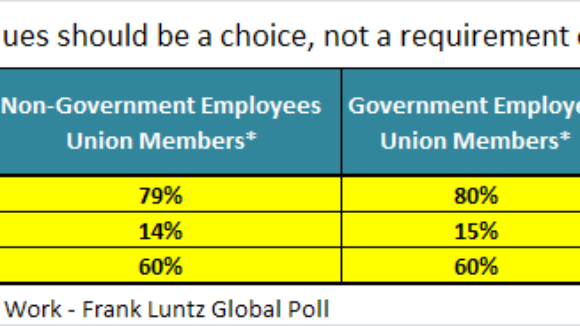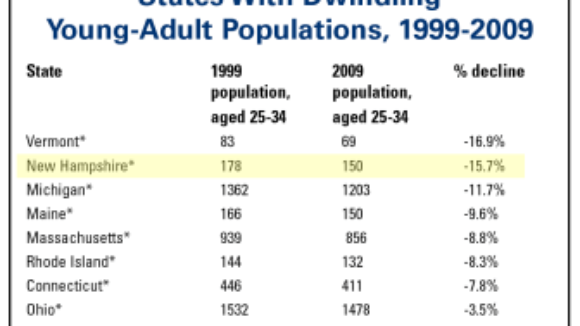Right to Work in New England
Once again, the Wall Street Journal makes an eloquent case in support of the Right to Work -- this time imploring legislators in New Hampshire to override a veto to become the first Right to Work state in New England:
Twenty-two states have right-to-work laws, most of them in the faster-growing South and West. The big news is that New Hampshire is edging closer to becoming the 23rd, which would make it the first new right-to-work state since Oklahoma in 2001 and could lead to a regional revolution.
The state House and Senate in Concord have passed a right-to-work statute, but Governor John Lynch, a Democrat, vetoed the bill. On May 25 the legislature will attempt to override that veto, and House Speaker Bill O'Brien says he is "cautiously optimistic" that he can gain the two-thirds majority to do so.
This would be a landmark victory for the right-to-work movement. All other Northeastern states operate under forced-union rules, so the Granite State would gain a decisive competitive advantage over its neighbors in attracting investment and jobs. "Passing right to work on top of not having an income tax could make us the Hong Kong of the region," Mr. O'Brien says. The precedent would put enormous pressure on Maine and Massachusetts to follow. We assume Vermont is hopeless and prefers to be a tourist and natural history museum.
Right-to-work laws don't outlaw unions. They simply allow each individual worker to decide whether or not to join the union. In compulsory-union states, workers employed in unionized workplaces are required to have union dues withheld from their paychecks as a condition of employment, so there's big money at stake here for unions.




